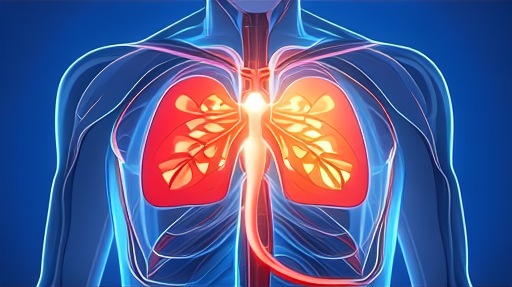Shockingly, one person dies every 36 seconds due to this condition. Heart issues don’t develop overnight, and they rarely come with obvious warning signs like chest pain, breathlessness, or palpitations right away. Often, subtle symptoms can appear long before a heart attack or stroke, making it harder to recognize the problem.
Identifying these early signs could help you act before it’s too late. In today’s video, we’ll discuss early warning signs that you might be at risk for heart disease. From persistent cough and random cold sweats to high cholesterol and shortness of breath, stick around until the end to learn about them all.

1. Upset Stomach
A stomach ache, vomiting, or acidity may seem like minor issues, often linked to flu or food poisoning. However, if your symptoms don’t align with what you ate or drank, it could signal heart trouble. Women, in particular, are more likely to experience an upset stomach as a heart disease symptom.
What foods upset your stomach? Share in the comments below!
2. Persistent Cough
A chronic cough might not always indicate heart problems, but it could be a sign of congestive heart failure. When the heart struggles to pump efficiently, blood backs up into the lungs, leading to fluid buildup and irritation. If your cough is accompanied by shortness of breath or chest tightness, seek medical advice immediately.
3. Random Cold Sweats
While sweating is a natural way to cool down, cold sweats unrelated to physical activity can indicate heart inflammation. If cold sweats occur alongside chest pain or discomfort, it’s a red flag for a potential heart attack.
4. Anxiety and Palpitations
Heart disease can lead to anxiety and episodes of heart palpitations. Research also shows that chronic anxiety from an early age can increase the likelihood of developing cardiovascular problems. If your heart races unexpectedly, consult a doctor.
5. Leg Pain
Aches or cramping in your legs during physical activity that eases with rest could point to peripheral artery disease (PAD). This condition involves reduced blood flow to the extremities and is more common in smokers and diabetics.
6. Swollen Ankles
Swollen feet or ankles may signal heart failure, though other conditions like pregnancy can also cause this symptom. If swelling persists, consult your doctor for a diagnosis.
7. Unexplained Fatigue
Feeling exhausted after minimal exertion could mean your heart isn’t pumping blood efficiently. Women are particularly prone to fatigue as an early symptom of heart disease.
8. Dizziness or Lightheadedness
Heart Disease Occasional dizziness could result from dehydration or standing up too quickly. However, recurring episodes may indicate low blood pressure caused by arterial blockages or faulty heart valves.
9. Depression
While not a direct symptom, depression is closely linked to heart health. Studies suggest that individuals with depression are at higher risk of heart issues.
10. Chest Discomfort
Chest pain, pressure, or burning—known as angina—is a classic sign of heart trouble Heart Disease. Even mild chest discomfort that doesn’t worsen with touch should be taken seriously.
11. High Cholesterol
Regular monitoring and dietary changes can help manage cholesterol levels effectively.
12. Lack of Stamina
A decline in exercise tolerance, even for those who are active, might signal underlying heart problems. Pay attention to any noticeable changes in your stamina.
13. Shortness of Breath
Breathing issues are often the first sign of a heart problem. Whether sudden or gradual, shortness of breath should never be ignored and warrants immediate attention.
14. Left Shoulder Pain
If this pain occurs alongside other symptoms like chest tightness, seek medical help without delay.
15. Sleep Apnea
Interrupted breathing during sleep, or sleep apnea, is linked to both heart disease and other serious health conditions. If you experience symptoms, get your heart health evaluated. Being aware of these symptoms is crucial for early detection and prevention. Cleaning up your diet, exercising regularly, and avoiding bad habits can also help maintain a healthy heart.
Have you ever noticed any of these symptoms? Share your experiences in the comments below!

